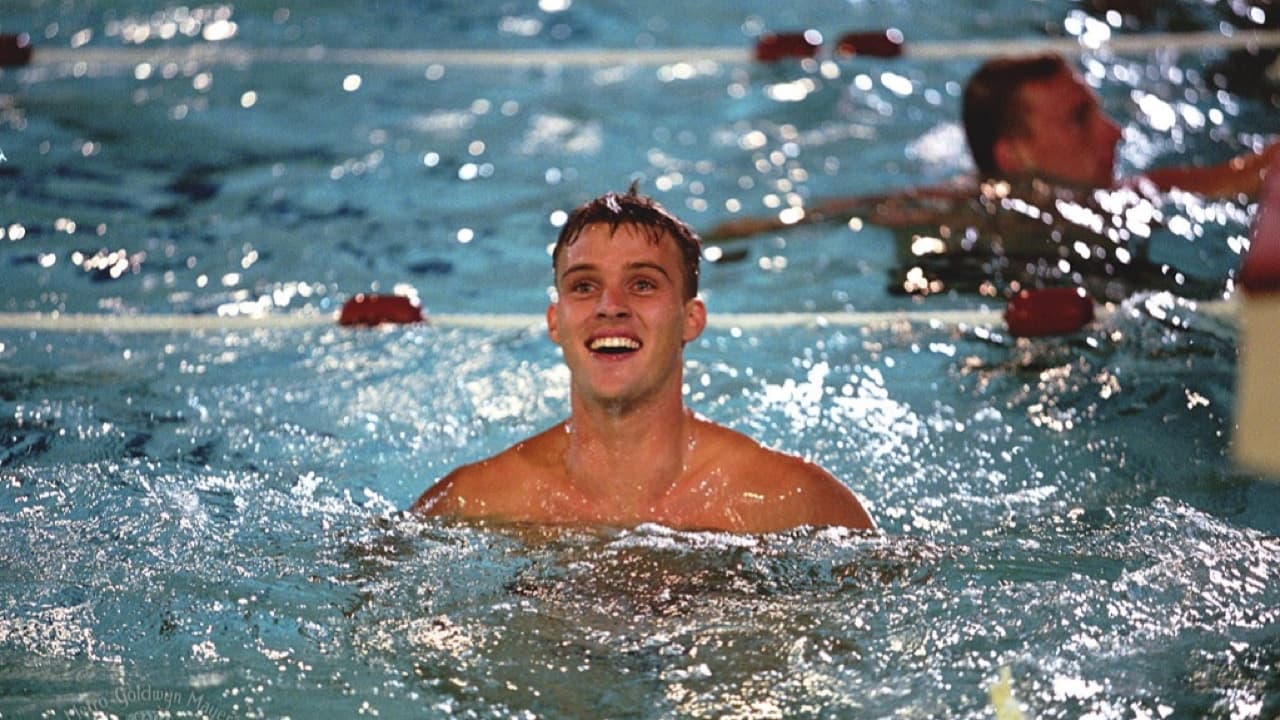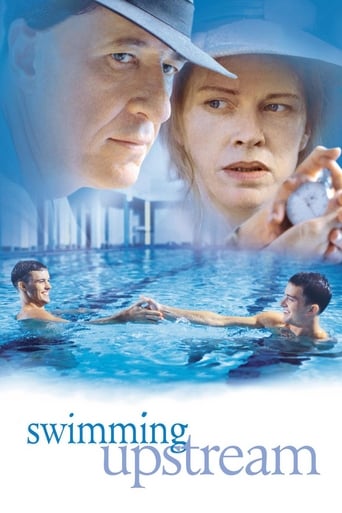SmugKitZine
Tied for the best movie I have ever seen
Greenes
Please don't spend money on this.
Dorathen
Better Late Then Never
Guillelmina
The film's masterful storytelling did its job. The message was clear. No need to overdo.
vaynor
In the 1980's there was a long series of Australian films shown on British television - BBC2. After a long diet of Hollywood rubbish it was simply marvellous to see one excellent film after another. The films were mainly funded by public money and i suspect that there are few other countries were the public funding of a film industry has produced such a rich output of world standard. Certainly not in the UK where our native film industry is almost constantly swamped by Hollywood formula movies that dumb down the intelligence of audiences worldwide. in the UK just an occasional Brit's funded classic emerges from the mire. Swimming Upstream is a worthy successor to the Australian films of that early period and i commend it for your viewing without exception.It is the finest performance amongst many for Judy Davis. Geoffrey Rush is utterly convincing as the hard drinking hard thinking Australian father of two sons both with swimming ability. It is an open indictment of the traditional hard edged primeval machismo of Australian male society yet not without understanding and sympathy of that dog breeds dog condition. male brutality breeding male brutality goes hand in hand with indications of the impact of job insecurity and the poverty of families that result from such circumstances. This movie is an inspirational beacon of how sport and in this case swimming in particular can provide a release from such pressures. For some perhaps even a road to freedom and a sense of personal worth thus helping to breech the cycle of brutality associated with traditional male behaviour in Australia. Australia is still a world class producer of thinking mans cinema.
Dean Mountford
Well I finally got the U.S. release of Swimming Upstream and was surprised to find the endings were somewhat different than the Australian version.Some scenes with reference to Dawn Fraser appear to have been cut out of the American version as most Audiences in the U.S. won't understand who Dawn Fraser was. The American version seems to feel a bit less uncomfortable to watch than the Australian cut, in terms of the issues of alcoholism presented on screen. I actually like the cut of the U.S. version because of that...Great work guys, and I hope to see more good things come out of Crusader soon!
aaronnz
One of the best Aussie films I have seen in years. At first I thought, oh god here we go another badly acted film but give it five minutes and it starts to reveal an overlapping tapestry of characters with diverse personality's, which reflects the often too true reality of the traditional Aussie or New Zealand 1950's/1960's family. The traditionally emotional un-involved alcoholic father,this movie took me back to my own childhood and I am sure many Aussies and New Zealanders can relate. Not only does this film reflect the life of an otherwise ordinary family, who fought against extraordinary overwhelming odds. This film shows that dreams can become reality even for those of us needing to overcome extremely difficult situations. And that all of us are given opportunity's to grab and go with.Great film well acted after the first five minute lol. And with a good cast. A film, which should gain much more recognition that what it maybe has excellent 10/10
noralee
"Swimming Upstream" reveals an intense dysfunctional psycho drama behind a competitive sport. It is as moving about a macho male athletic culture, here focused on swimming, as "Friday Night Lights" was about football, particularly as dysfunctionally fueled by alcohol.Geoffrey Rush gives a searing performance as an alcoholic patriarch who arbitrarily plays his sons against each other for his attention and approval.Judy Davis, who usually masters powerful women, here is memorable as a buffeted mother drained by caring for five children, poverty and her occasionally violent husband.Claustrophobic family dynamics are well-captured, particularly in showing how childhood experiences shape adults emotionally forever and what was once a refuge becomes torture.When the sons reach adolescence the screen is filled by blue-eyed Jesse Spencer (he's in a crew-cut with rippling muscles in the pool so much that I didn't recognize him as the very clothed, longish haired doctor in TV's "House") and the young men in small bathing trunks playing his brothers, in heightened scenes of very physical sibling rivalry and closeness.The visuals and production design well communicate the bloke culture of Brisbane in the 1950's and early 1960's, from the fading docks, to the pubs, to the locker rooms, to the union halls, that is brutally carried into the family.The shocked smile on Spencer's face as "Tony Fingleton" discovers a wider culture through his swimming, heck with admiring women in it, is heart warming as I thought that if someone doesn't give that guy a hug already I'll reach through the movie screen and do it myself.Russell Mulcahy's directing, however, frequently undercuts the power, with unnecessary narration and gimmicky camera moves during intense scenes.The timetable as years go by is a bit confusing, especially as annual tournaments repeat.

